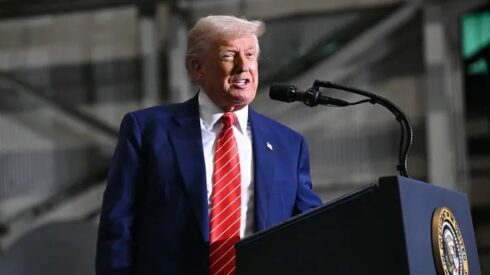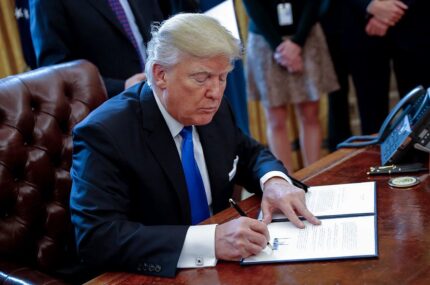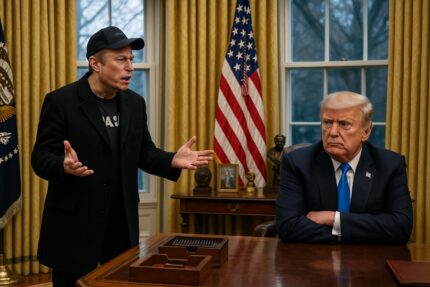President Donald Trump has signed a wide-ranging executive order reinstating and expanding the U.S. travel ban, barring entry from 12 countries and imposing partial restrictions on another seven. The move, which goes into effect on June 9, 2025, was framed as a national security measure in the wake of a violent attack in Boulder, Colorado, allegedly carried out by an Egyptian national who had overstayed his visa.
Despite the origins of the suspect, Egypt is not among the banned countries. Instead, the Trump administration cited high visa overstay rates, inadequate identity verification systems, and poor cooperation in deportation efforts as the basis for targeting specific nations. The announcement has reignited fierce debate over immigration, civil liberties, and executive power.
Countries Fully Barred from Entry
Under the new order, citizens of 12 countries—Afghanistan, Iran, Libya, Somalia, Haiti, Sudan, Yemen, Myanmar, Chad, Republic of the Congo, Equatorial Guinea, and Eritrea—are now prohibited from entering the United States under any visa category. These restrictions apply to both immigrants and non-immigrant visitors, such as tourists and students.
White House officials stated these countries were selected based on security assessments indicating systemic weaknesses in identity verification and counterterrorism cooperation. “These commonsense restrictions are country-specific and focus on areas that lack proper vetting or fail to share critical threat intelligence,” said White House Press Secretary Abigail Jackson.
Partial Visa Restrictions for Seven More Nations
The executive order also imposes partial restrictions on seven countries: Cuba, Venezuela, Laos, Burundi, Sierra Leone, Togo, and Turkmenistan. Nationals from these countries will face bans on immigrant and tourist visas but may still apply for temporary work visas—albeit under stricter scrutiny and with enhanced documentation requirements.
The administration clarified that these partial restrictions are aimed at addressing high visa fraud rates and weak border enforcement in the affected nations. Enhanced security screenings and biometrics will be required as part of visa processing for individuals from these countries.
Exemptions for Specific Groups

Despite the sweeping nature of the policy, certain exemptions are in place. U.S. permanent residents, diplomats, dual nationals with passports from non-listed countries, and athletes participating in international sporting events like the FIFA World Cup or the Olympics are excluded from the ban.
Additionally, Afghans who assisted American forces and hold special immigrant visas are also exempted. The executive order proposes a new $1,000 expedited visa interview fee for non-exempt applicants, with the proceeds partially funding voluntary self-deportation programs totaling $250 million.
Security Concerns Cited After Boulder Attack
The travel ban follows the June 1 attack in Boulder, Colorado, during a march in support of Israeli hostages held by Hamas. The assailant, identified as an Egyptian national who had overstayed his visa, used Molotov cocktails to target demonstrators, injuring several.
In a video statement, President Trump said the attack “underscored the extreme dangers posed to our country by the entry of foreign nationals who are not properly vetted, as well as those who come here as temporary visitors and overstay their visas.” He added that the list of countries may be revised in response to emerging threats or improved cooperation from foreign governments.
Legal Challenges and Political Reactions Expected
Immigration advocates, civil rights organizations, and Democratic lawmakers swiftly condemned the order. Critics argue that the ban unfairly targets vulnerable populations and mirrors the controversial travel bans of Trump’s first term, which were widely criticized as discriminatory and challenged in court.
Legal experts anticipate a new wave of lawsuits, although the Trump administration is confident that the executive order will stand up to judicial scrutiny. “The Supreme Court has already affirmed the president’s authority to protect the nation’s borders. We are confident this action is both lawful and necessary,” a senior administration official said Wednesday evening.
Echoes of First-Term Travel Ban Policies by Trump administration
This new proclamation marks a continuation of President Trump’s hardline immigration approach, echoing travel bans imposed during his first term. In 2017 and 2020, Trump issued similar executive actions targeting Muslim-majority and African countries, some of which were upheld by the Supreme Court before being rescinded by the Biden administration.
Unlike those earlier bans, which triggered mass protests and chaos at airports, Wednesday’s announcement was more tightly coordinated with federal agencies and international airlines. However, with legal challenges on the horizon and immigration once again taking center stage in American politics, the long-term impact of the new travel ban remains uncertain.














